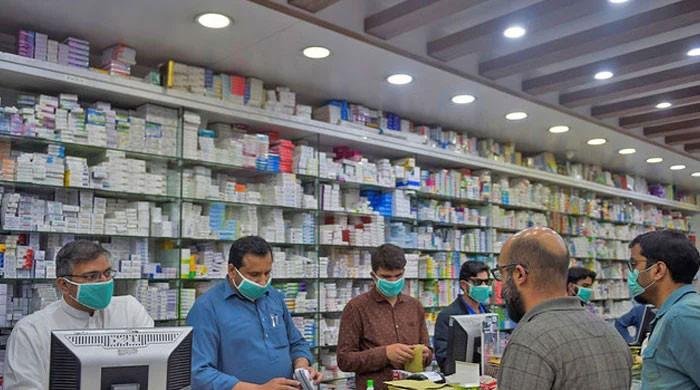Pakistan’s pharmaceutical landscape is facing one of its biggest shocks in recent years: five multinational pharma companies—Bayer, ICI Pakistan, Sanofi-Aventis, Pfizer, and Novartis—have exited or shut down their manufacturing operations. The National Assembly was officially informed of these developments, confirming what industry insiders had feared for months.
Health Minister Syed Mustafa Kamal explained that while the companies have divested their local manufacturing units, these facilities are now operating under domestic ownership to prevent a shortage of essential medicines. However, behind this calm explanation lies a much deeper crisis—one that exposes the growing vulnerabilities of Pakistan’s pharma industry.
Multinational Exits: What Really Happened?
The government has framed these departures as “strategic shifts” rather than shutdowns. But industry experts—and even former employees—say there’s more to the story.
Here’s the breakdown of the companies that have exited:
• Bayer’s Lahore Unit
• ICI Pakistan’s multi-city operations
• Sanofi’s Korangi industrial plant
• Pfizer’s facility in Karachi’s S.I.T.E. area
• Novartis’ West Wharf manufacturing site
These weren’t small-scale closures; these were some of Pakistan’s most advanced and highly regulated pharma plants.
Why Did These Pharma Giants Pull Out?
A combination of long-standing economic and regulatory challenges pushed multinational companies to the point where continuing operations became unsustainable. Here are the critical factors:
1. Severe Currency Devaluation
Pakistan’s rapid rupee depreciation made raw material imports extremely expensive.
Most drug ingredients are imported; when the rupee collapses, so do profit margins.
2. Price Controls That Don’t Match Costs
Government price caps prevented companies from adjusting medicine prices despite rising global costs.
Companies were forced to sell certain essential medicines at a loss—a situation impossible to maintain long-term.
3. Regulatory Delays and Bureaucracy
Obtaining approvals for prices, imports, or new product registrations involves months of paperwork.
For multinationals operating on tight regulatory timelines globally, this inefficiency becomes a deal-breaker.
4. Dependence on Imported Raw Materials
Pakistan has not developed a strong Active Pharmaceutical Ingredient (API) manufacturing base.
When global supply chains became unstable, pharma companies faced rising costs and severe shortages.
5. Growing Preference for Contract Manufacturing
Instead of owning factories, many multinationals worldwide are switching to franchising models or licensing production to local firms.
This trend encouraged companies to exit physical manufacturing and simply continue selling imported or contract-made products.
Impact on Pakistan’s Pharma Sector
The departure of five major global companies signals a critical weakening in Pakistan’s ability to maintain high-quality pharmaceutical standards.
Loss of Technology & Expertise
Multinational companies bring research capability, advanced machinery, and strict quality control mechanisms. Their exit leaves a knowledge and technology vacuum.
Reduced Foreign Investment
Pharma has historically been one of the most stable sectors for foreign investors. With giants pulling out, investor confidence may take years to rebuild.
Local Companies Under Pressure
Local manufacturers have taken over the plants, but they face:
• costly imports
• thin profit margins
• rising inflation
• high-interest loans
Without multinational support, meeting international-quality benchmarks becomes much harder.
Medicine Availability Concerns
While the government insists there is no disruption, long-term risks remain:
• shortages of specialized or patented medicines
• reduced competition
• higher prices for imported drugs
Pakistan’s Pharma Industry: A Sector at a Crossroads
Pakistan’s pharmaceutical sector has enormous potential—serving a population of 240 million, exporting to Africa and Central Asia, and employing thousands.
But unless systemic reforms occur, the sector may continue losing global relevance.
Here’s what experts say needs immediate action:
• developing a local API industry
• revising outdated price control policies
• strengthening regulatory bodies with faster, transparent processes
• improving ease of doing business for investors
• stabilizing currency fluctuations through policy consistency
These changes could bring multinational players back—or at least prevent more exits.
Final Thoughts: A Wake-Up Call for the Government
The exit of Bayer, Pfizer, Sanofi, Novartis, and ICI is not just a corporate decision—it is a warning. Pakistan’s pharmaceutical industry is struggling under pressure from economic instability, rigid regulation, and operational challenges. Without urgent reforms, more companies may follow, and essential medicines could become harder to source.
The question now is not why they left—but whether Pakistan can prevent others from leaving too.
Read More: Workplace Discrimination Hits Majority of Employees with Diabetes in Pakistan



3 Comments
Pingback: HPV Vaccines and Cervical Cancer Prevention: UNICEF’s Fight
Thanks for sharing. I read many of your blog posts, cool, your blog is very good. https://www.binance.com/kz/register?ref=K8NFKJBQ
Can you be more specific about the content of your article? After reading it, I still have some doubts. Hope you can help me. https://www.binance.com/id/register?ref=UM6SMJM3